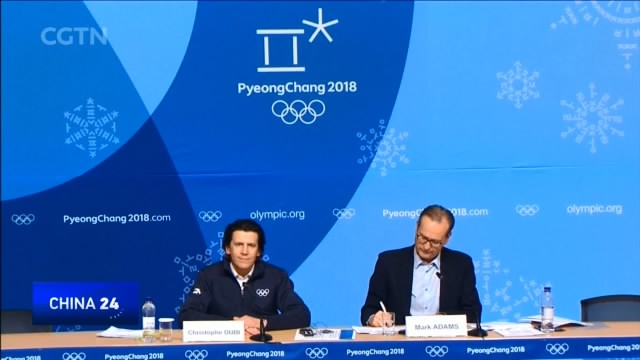
20:58, 25-Feb-2018
Winter Olympics: Games usher in 'Asia era'

The president of South Korea's Olympic organizing committee has described the fact that three Olympics in a row, staged in his country as well as Japan and China, as ushering in a new 'Olympic Asian era'. CGTN's Jack Barton spoke to organizers at the PyeongChang Games to find out exactly what that means.
China, South Korea and Japan have all hosted Olympics before, so organizers say the fact they're re-hosting three Games in a row is not a coming out event, but evidence Asia is now an established sporting powerhouse.
NANCY PARK, SPOKESPERSON PYEONGCHANG ORGANIZING COMMITTEE "For our Games we are really excited to develop winter sports to introduce winter sports here in Korea and also throughout Asia and we're happy that the Olympics that come after us will also be able to develop that legacy of developing sport throughout Asia."
The new Asian era coincides with a backlash against hosting the Games in many European countries that were hit hard by the financial crisis and are put off by the financial loses often associated with being a host. The International Olympic Committee has taken note and introduced reforms.
CHRISTOPHE DUBI OLYMPIC GAMES EXECUTIVE DIRECTOR "We have a whole bulk of 100 measures to create games, which are more flexible, easier to operate, bottom line less expensive."
The new sustainability drive includes favoring countries that have already have Olympic-scale infrastructure.
JACK BARTON PYEONGCHANG "After Asia the summer Games will head to Paris and Los Angeles where more than 90 percent of the required Olympic facilities are already in place, dramatically cutting down on cost."
It's an advantage also now shared by China, Japan and South Korea, and not just in infrastructure, but also shared knowledge.
NANCY PARK, SPOKESPERSON PYEONGCHANG ORGANIZING COMMITTEE "We work very closely with Tokyo 2020 and also Beijing 2022. We have observers from their organizing committees on our organizing committee. We have a lot of knowledge sharing programs as well, we are trying to share the knowledge, the experience of the Games and we're also working together on the organizing committees so it's a really great relationship."
Following Rio and now the Games in Asia, it does appear that a tradition long dominated by Europe and the Americas has now truly gone global. Jack Barton, CGTN, PyeongChang.

SITEMAP
Copyright © 2018 CGTN. Beijing ICP prepared NO.16065310-3
Copyright © 2018 CGTN. Beijing ICP prepared NO.16065310-3